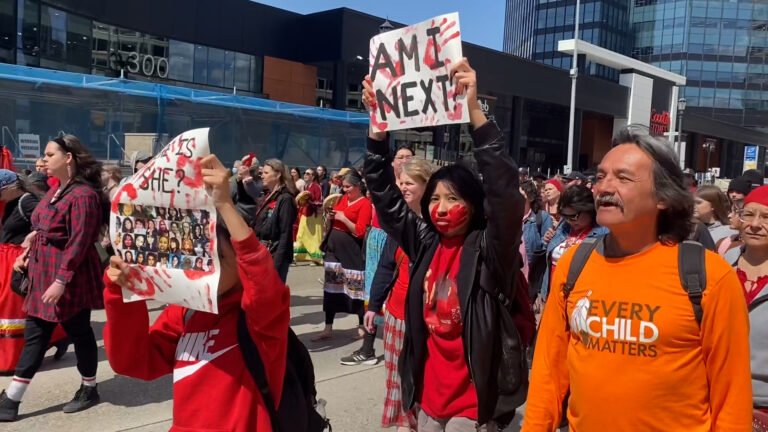
In a discussion that has escalated an already fragile diplomatic relationship with India, Canadian authorities banned an Australian news channel from airing a press conference conducted by India’s External Affairs Minister S. Jaishankar. This action, taken as diplomatic friction between Canada and India was rising, has attracted widespread condemnation and raised questions about Canada’s position towards freedom of speech and accountability. PM Justin Trudeau’s government has announced Canada as a country that promotes freedom of speech worldwide, but this incident seems to expose gaps in the practice of these principles.
Deteriorating Social Relations
Tensions between Canada and India have been strained ever since Prime Minister Trudeau claimed that Indian intelligence services were involved in the murder of pro-Khalistani Hardeep Singh Nijjar who had made Canada his home. India which has refuted such claims, in turn has accused Canada of breeding and being an enabler for extremists which has caused a further diplomatic rift.
The imposition of a broadcast ban is seemingly deepening the existing diplomatic rifts, especially prominent in the speech of S. Jaishankar who is critical of Canada’s position on free speech. Jaishankar referred to the Canadian Empire’s observable patience towards the “anti-India elements” per their remarks in India and their selective application of free speech notions that allowed people to threaten Indian government members openly.
Canada’s Freedom of Speech Policies: A Question of Consistency?
This incident comes under scrutiny regarding Canada’s freedom of expression. Trudeau has always pushed for embracing a principle where one can boldly declare Canada as one of the stalwarts for free speech and lambaste other governments many a time against a free press and free speech, but it contradicts by having the channel banned. The ban on the broadcast by Jaishankar raises such questions.
This double standard was openly questioned by Jaishankar, as he contended that whereas Canada can tolerate speech against Indian interests, even threats of criticism from an Indian official is deemed “foreign interference.” What he speaks to is more significant; can Canada maintain free speech and at the same time censor those international voices that challenge its political narratives? The critics have opined that if the country’s free speech principles truly held, they would apply consistently; views should not matter as long as they do or do not align with the Canadian domestic policy.
Influence on Domestic Politics: Trudeau’s Calculations Amid Growing Criticism
This controversy may have negative consequences for Trudeau’s political future as his administration has been receiving a lot of domestic criticism for various reasons. Trudeau’s rise in popularity has seen a decline due to the increase in inflation, the housing crisis, and criticism over his lack of effectiveness in foreign relations. This incident certainly adds a wrinkle to Trudeau’s position as his critics have accused him of restricting media access to shape public views on some aspects of his policies especially considering that Trudeau’s government has taken a proactive approach to try and curb the negative fallout within Canada from extremist activities.
People believe that the ban and the diplomatic tussle may harm his image amongst Canada’s ethnic minorities, with an emphasis on the large Indian community. Traditionally, multicultural and minority voters have been a solid constituency for Trudeau’s government, however, in this conflict, the prime minister’s position could jeopardize his support from these groups. This ban may further aggravate Canadian critiques that Trudeau’s government is sacrificing democratic principles to avert disputes internationally, this may in turn come back to haunt the government towards the election.
Broader Context: Canada’s Attitude Towards Extremism and Its Effects
The essence of this controversy is the relative mechanisms adopted by Canada in dealing with extremism and related groups and activities. Until recent years, Canada was viewed as a country providing for freedom of assembly and freedom of expression which frequently resulted in sanctuary areas for oppressed political activists and exiles. India, however, argues that this tolerance is also extended towards extremists who advocate for violent separatism, more so the pro-Khalistan supporters. Jaishankar further explains that the inaction of Canada concerning these groups threatens the security of Indian officials and interests, which does not help the state relations of the two countries.
This has also been the case with Canada’s internal policies, which is what Jaishankar seeks to address. He has also emphasized that Canadian authorities permit threats to be made against Indian dignitaries under the guise of free speech whilst qualifying Indian representative’s rebuttals as “foreign interference” abuse. This inconsistency, whether real or perceived, has fostered even greater Indian discontent with Jaishankar pointing out that Canadians are certainly, by their deeds, cultivating the extremist voices and placing the Indian diplomats in danger.
Election Prospects: Will This Change the Outlook for Trudeau?
As the next elections draw nearer, Trudeau’s diplomatic relations with New Delhi in recent months are bound to be open to examination. His critics contend that the use of free speech only concerning limited situations could harm his government’s image amongst those who consider democratic values a priority. Thus, leveraging this matter to the advantage of his political campaign could significantly assist with public perception concerning his government’s evidence on transparency and fairness in the conduct of business.
The growing divide on Trudeau’s public policies and increasing frustration towards inflation and housing scarcity issues amongst Canadians will serve to make matters worse for Trudeau. The strain in relational dynamics with India, Fukuyama posits, will make his situation even more difficult. If the electorate begins to see his tactics as sacrificing democratic practices for political reasons, both multicultural communities and free speech activists could pull their support.




